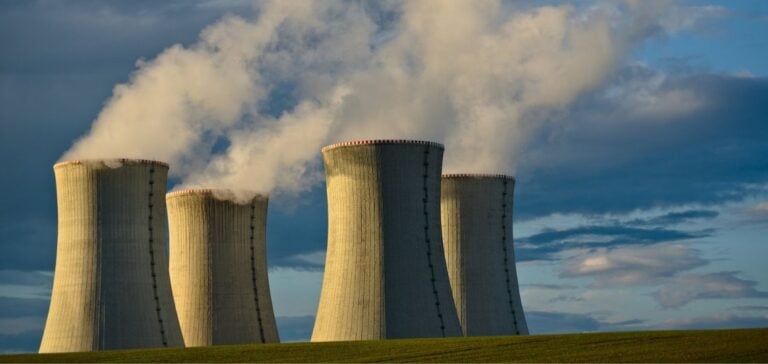Teesside University, in partnership with X-energy and Cavendish Nuclear, has launched a socio-economic assessment for the project to build a new-generation nuclear reactor at Hartlepool. The project, which involves the installation of twelve Xe-100 reactors, is a key initiative to strengthen energy security and achieve the UK ‘s decarbonization objectives. The assessment, led by Professor Matthew Cotton of Teesside University, will draw on the expertise of the university’s business, social sciences and law schools. The Xe-100 reactor project, designed to operate as a 320MWe power plant or in 80MWe units, represents a significant investment in energy infrastructure. Xe-100 reactors are based on decades of research and development in high-temperature reactors (HTGR), and are suitable for heavy-duty industrial applications thanks to their ability to deliver high thermal power.
Economic and environmental impact
The socio-economic assessment aims to examine the project’s impact on employment, skills, supply chain contracts and investment in the Tees Valley region. Initial estimates indicate that construction of the plant will employ thousands of workers, with hundreds of permanent jobs once the reactors are operational. The project is part-funded by the UK government via the Future Nuclear Enabling Fund, which allocated £3.34 million in April 2023, matched by an equal investment from X-energy. Carol Tansley, Vice President of X-energy and market leader in the UK, emphasized the importance of this project for the local economy and energy security: “Our nuclear power plant project represents a fantastic economic and employment opportunity, as well as making a vital contribution to energy security and decarbonization.”
Assessment and Future Prospects
The assessment method involves analysis of available socio-economic data and consultation with local stakeholders, including government officials, community leaders and sector experts. Professor Cotton said: “It is essential to understand the impact this project will have on the Tees Valley region. By analyzing the socio-economic considerations, we can determine the best actions to maximize the benefits and mitigate the impacts.” In addition to the immediate benefits, the Hartlepool nuclear reactor project is designed to bring long-term benefits in terms of productivity and regional economic growth. Mick Gornall, Managing Director of Cavendish Nuclear, added: “A project of this scale can boost the regional economy by creating local supply chains and infrastructure. We estimate that a national fleet of 40 Xe-100 reactors could bring around £20 billion of investment to the UK.”
Contribution to National Decarbonization Objectives
The Xe-100 project is part of the UK’s efforts to reach its net-zero emissions target by 2050. By providing a reliable, low-carbon source of electricity, these reactors will play a role in the country’s energy transition. What’s more, Xe-100 reactors are designed to integrate seamlessly with renewable energy systems, offering greater flexibility and reliability to the power grid. Teesside University and its partners will also examine potential industrial applications for the reactors, such as the production of hydrogen and aviation fuel, thus enhancing energy diversification and sustainability. Teesside University’s socio-economic assessment of the Xe-100 nuclear reactor project at Hartlepool is a key element in the initiative to strengthen energy security and achieve the UK’s decarbonization objectives. By mobilizing diverse expertise and collaborating with local and national players, this project promises to generate substantial economic benefits and promote innovation in the energy sector.






















